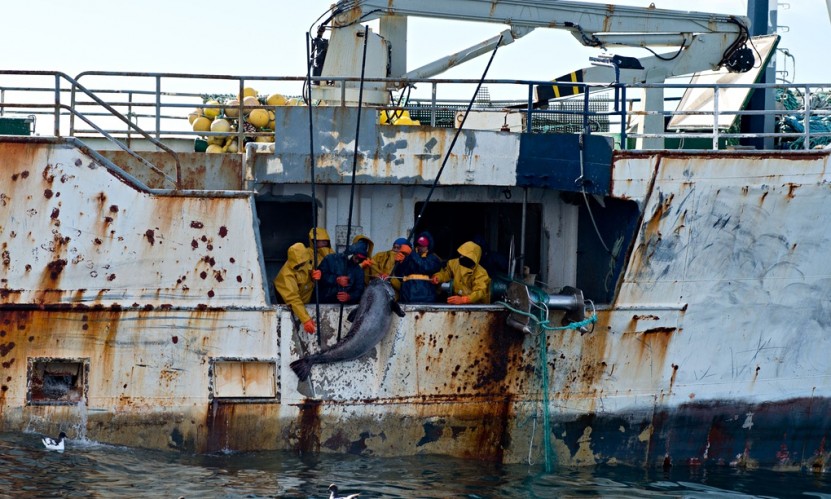New guidance aims to keep products of pirate fishing out of UK supply chain

Illegal “pirate” fishing damages the environment and human rights, and leads to economic losses of as much as $23.5bn (£15.3 bn) a year, according to fresh guidance which aims to help British businesses keep illegal fish products out of the supply chain and stamp the practice out.
A briefing published by retailers, conservation and human rights groups sets out in full how retailers and suppliers should act to end the long-term threat to the oceans, while building up legal and sustainable fisheries.
It offers advice on risk-assessment and mitigation, and encourages action to prevent illegal fishery products entering UK supply chains. As much as 26 million tonnes of illegal fish products is involved annually.
The briefing by the British Retail Consortium, Environmental Justice Foundation and WWF UK is to inform UK industry, retailers and brands of the risks associated with illegal, unreported and unregulated or pirate fishing.
Retailers were last year urged to do more to stamp out human rights abuses by their suppliers after a Guardian investigation found Thai prawns sold in UK supermarkets were produced with the help of slaves. A six-month investigation showed how slaves, forced to work years at a time under threat of extreme violence, were being used in Asia to produce seafood sold by the likes of Walmart, Carrefour, Costco, Tesco, Aldi, Morrisons, the Co-operative and Iceland. Many men were bought, sold and held on fishing boats off Thailand.
Eight key recommendations in the document relate to increased transparency and traceability of fish supplies. They include all large fishing vessels being required to have a unique identification to enable satellite tracking, improvement of port controls to prevent influx of pirate fish supply, and an EU centrally coordinated database of fish-catches and fisheries. Retailers will also be urged to demand more detailed information about suppliers’ working conditions for staff.
Steve Trent, executive director of EJF, which is set to produce new and detailed evidence of ongoing bad practice by prawn farmers in Asia, said more “decisive” action by major companies and retailers was needed to bring about long-term change. He said: “Knowing where, under what conditions and by which vessel seafood is caught, is a fundamental step towards building legal, sustainable fisheries. It is time for major retailers, brands, importers and suppliers to take determined, decisive action.
“Companies have the power and the right to demand accountability and require suppliers to provide information on where products come from. What is needed now is the full engagement of the corporate sector, alongside government and other key stakeholders.”
Tracy Cambridge, fisheries and seafood manager of WWF UK, said: “This joint advisory note can empower UK importers, processors and retailers to play an increasingly leading role in bringing this destructive trade to an end.”
Andrew Opie, director of food and sustainability at the British Retail Consortium, said: “Our practical guidance will help all retailers and manufacturers ensure this fish does not enter our supply chains. This is a great example of British retailers using our expertise to influence global sourcing for the benefit of all and hope the principles will be adopted by other food companies abroad.”



